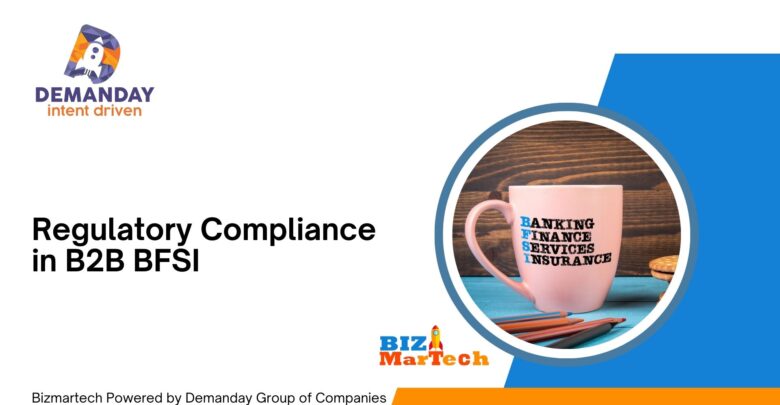BFSI
Regulatory Compliance in B2B BFSI

The B2B BFSI (Business-to-Business Banking, Financial Services, and Insurance) industry is highly regulated due to the critical role it plays in the global economy. The industry is subject to numerous regulations and guidelines from various regulatory bodies, including government agencies and industry associations. In this answer, we will discuss the regulatory landscape of the B2B BFSI industry, the regulatory bodies involved, and the compliance requirements that businesses must adhere to.
Regulatory Bodies in the B2B BFSI Industry:
- Financial Stability Oversight Council (FSOC): It is responsible for monitoring and identifying risks to the financial stability of the United States. It is composed of ten voting members, including the Secretary of the Treasury, the Chairman of the Federal Reserve, and the heads of other financial regulatory agencies.
- Federal Reserve System: It is the central bank of the United States, responsible for regulating the country’s monetary policy, supervising and regulating banks, and ensuring the stability of the financial system.
- Securities and Exchange Commission (SEC): It is responsible for regulating the securities industry in the United States, including exchanges, brokers, dealers, investment advisers, and mutual funds.
- Commodities Futures Trading Commission (CFTC): It is responsible for regulating futures and options markets in the United States.
- Office of the Comptroller of the Currency (OCC): It is responsible for regulating national banks and federal savings associations.
- National Credit Union Administration (NCUA): It is responsible for regulating and insuring credit unions in the United States.
- Federal Deposit Insurance Corporation (FDIC): It is responsible for insuring deposits in banks and thrift institutions, and also supervises and regulates these institutions.
Compliance Requirements in the B2B BFSI Industry:
- Anti-Money Laundering (AML) Compliance: Businesses in the B2B BFSI industry must have an effective AML compliance program to prevent money laundering and terrorist financing. This includes conducting customer due diligence, monitoring transactions, and reporting suspicious activities.
- Know Your Customer (KYC) Compliance: B2B BFSI businesses must also have a robust KYC program to identify and verify the identities of their customers, which helps to prevent fraud and financial crimes.
- Information Security: Given the sensitive nature of financial information, B2B BFSI businesses must implement robust information security measures to protect against cyber threats and data breaches.
- Consumer Protection: B2B BFSI businesses must comply with consumer protection laws, such as the Fair Credit Reporting Act (FCRA) and the Fair Debt Collection Practices Act (FDCPA), to ensure that they treat their customers fairly.
- Risk Management: B2B BFSI businesses must have an effective risk management program to identify and mitigate risks, such as credit risk, operational risk, and market risk.
In conclusion, the B2B BFSI industry is highly regulated, and businesses in this industry must comply with numerous regulations and guidelines from various regulatory bodies. Compliance with these regulations is critical to ensure the safety and stability of the financial system, protect consumers, and prevent financial crimes.




